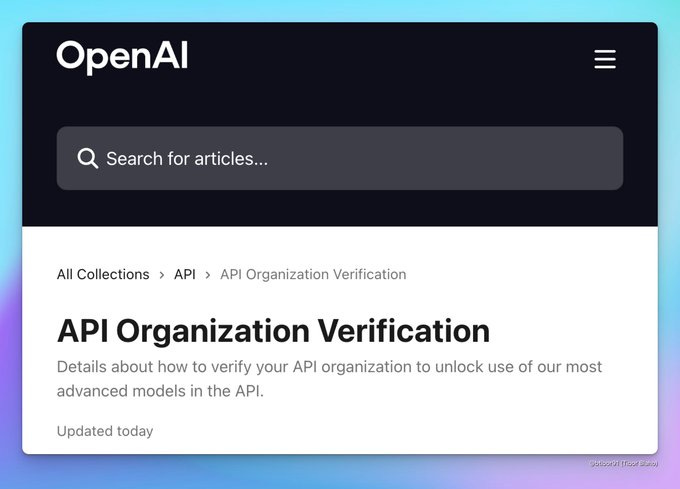Market Pulse: Infineon's $2.5B Deal, Blockchain Founders Fund on Web3, and Emerging AI Workspaces
PLUS: Former Uber Executive Building Something New
Announcement
This marks a major milestone in our journey as we join a global ecosystem of innovators, builders, and bold thinkers. As part of Microsoft for Startups, we’re not just scaling our platform - we’re leveling up how we engage with founders, tell stories, and power the next generation of entrepreneurial insight. Big things ahead. Stay tuned.
Episode Of The Week
This week, the Geeks of the Valley podcast released Episode #111 featuring Aly Madhavji, Managing Partner at Blockchain Founders Fund, a leading early-stage Web3 VC. In this episode, Aly dives into the importance of transparency in venture capital and how to build a Web3 ethos in a rapidly evolving ecosystem. Tune in!
As Managing Partner at Blockchain Founders Fund, Aly Madhavji is championing a new standard for transparency, accountability, and founder-first values in venture capital. His work spans early-stage Web3 startups across emerging markets, where he supports bold entrepreneurs shaping the decentralized future. Aly is also a Senior Blockchain Fellow at INSEAD and has served as an advisor to the United Nations on fintech and blockchain policy. With a background in management consulting and global development, Aly brings a unique blend of strategic insight and mission-driven leadership - making him a powerful voice at the intersection of venture capital and Web3 innovation.
Venture Radar
In mid-April 2025, OpenAI announced a significant policy shift that could reshape how developers access its most advanced AI models. According to a support page published on the company's website, OpenAI may soon require organizations to complete an ID verification process to access certain future AI models.
This move arrives as AI capabilities become increasingly powerful and potentially susceptible to misuse. OpenAI's introduction of a "Verified Organization" status aims to ensure that access to its cutting-edge models is granted to entities that meet specific verification criteria, thereby promoting responsible usage.
Why This Matters: Strategic Implications
Verification as a Gatekeeper for Advanced AI Access
OpenAI's new policy introduces a verification process that requires organizations to provide a government-issued ID from supported countries. This step is designed to mitigate unsafe use of AI while continuing to make advanced models available to the broader developer community.
Balancing Accessibility with Security
By implementing this verification process, OpenAI seeks to balance the broad accessibility of its AI models with the need to prevent misuse. The company acknowledges that a small minority of developers intentionally use OpenAI APIs in violation of usage policies, and this measure aims to address that concern.
Limiting Verification Frequency to Enhance Oversight
Each ID can only verify one organization every 90 days, and not all organizations will be eligible for verification. This limitation is intended to enhance oversight and ensure that the verification process remains stringent and effective.
Broader Context: What This Signals for the Industry
OpenAI's move to require ID verification for access to its advanced AI models reflects a growing trend in the AI industry to implement stricter access controls. As AI technologies become more sophisticated, companies are recognizing the importance of ensuring that these tools are used responsibly and ethically.
This policy change may set a precedent for other AI developers and organizations, signaling a shift toward more regulated access to powerful AI capabilities. It underscores the industry's commitment to balancing innovation with the imperative to prevent misuse and protect intellectual property.
As AI continues to evolve, measures like OpenAI's verification process could become standard practice, shaping the future landscape of AI development and deployment.
Geeks of the Week
Startup Name: Papr.ai
Geography: US
One-liner: AI-native workspace with infinite memory, powered by state-of-the-art retrieval accuracy.
Founder(s) Background: Lead Product Manager at Apple, Group Product Manager at Microsoft, General Manager at Amazon Ads, Senior Director of Product, Marketplace and Creators at Shopify.
Thoughts:
As the enterprise AI landscape shifts from experimentation to real deployment, one of the biggest challenges companies face is turning fragmented knowledge into actionable intelligence. Papr.ai sits squarely at this inflection point, offering an AI-native workspace purpose-built to solve knowledge retrieval, collaboration, and decision-making at scale.
The global AI-driven knowledge management system market is projected to grow at a CAGR of 43.7%, reaching over $250 billion by 2034. The surge in unstructured data, proliferation of SaaS tools, and increasing demand for AI-integrated workflows are converging to create urgent demand for solutions like Papr.ai. Enterprises are not just experimenting - they’re now budgeting and implementing AI into core processes.
From sales teams generating 360° customer views to product teams querying historical design decisions, Papr.ai’s use cases are clear, repeatable, and embedded in daily workflows. This drives high engagement and strong user retention - two key ingredients for long-term enterprise SaaS success. Its Memory API also opens up additional monetization opportunities by enabling third-party apps to embed Papr.ai’s core intelligence.
Founder(s) building in stealth
Deals of the Week
Venture funding activity remained robust over the past week, marked by several high-profile rounds across the US, Europe, and Asia. AI and enterprise SaaS continued to draw investor appetite, while fintech and biotech also saw notable traction. Key funding highlights include:
Nuro – the California-based autonomous delivery vehicle company – raised $106M in a Series E round led by T. Rowe Price, Fidelity, and Tiger Global, valuing the company at $6B. This signals sustained investor interest in AI-powered last-mile logistics, despite regulatory and infrastructure hurdles in urban markets.
Tessell – a multi-cloud database-as-a-service startup – secured $60M in Series B funding led by WestBridge Capital. With growing demand for flexible, cloud-agnostic data solutions, Tessell is positioned to become a key player in modern enterprise data architecture.
Solu Therapeutics – a Boston-based biotech firm developing immunotherapies for blood cancers – raised $41M in Series A funding from investors including Eli Lilly and Biovision Ventures. The company is leveraging next-gen biology to develop targeted degraders for hematological malignancies.
Easebuzz – an Indian payments infrastructure startup – raised $30M in a Series A round led by Bessemer Venture Partners. The company’s plug-and-play API stack serves thousands of SMEs, simplifying collections, settlements, and reconciliation in a fragmented financial ecosystem.
Artisan – an AI-powered digital sales agent platform – closed $25M in a Series A round led by Glade Brook Capital, with participation from Y Combinator and HubSpot Ventures. Artisan's virtual reps are gaining traction among SMBs looking to scale sales without the overhead of large teams.
RayThera – a San Diego-based immunology startup – raised $110M in Series A financing led by Foresite Capital and OrbiMed Advisors. Focused on antibody engineering and next-gen immunotherapies, RayThera is tackling autoimmune disorders and rare diseases with high unmet needs.
Notable Mergers and Acquisitions
Strategic consolidation is picking up across the startup landscape, with venture-backed companies becoming both acquirers and attractive targets. From fintech to enterprise tech and consumer brands, startups are leveraging M&A to scale faster, unlock new markets, and broaden their product offerings.
One standout move came from Infineon Technologies, which acquired Marvell Technology’s automotive Ethernet business for $2.5B. The deal cements Infineon’s growing dominance in automotive semiconductors, particularly in autonomous and connected vehicle architectures.
In digital health, a telehealth startup completed a $621M acquisition of Accolade, a Seattle-based employee benefits platform. The combination enables broader offerings in virtual care and benefits navigation, with synergies in employer-focused SaaS.
On the consumer front, Hershey acquired LesserEvil, the health-snack startup known for its organic popcorn and paleo puffs, in a $750M deal. The acquisition marks Hershey’s aggressive push into the “better-for-you” snacking category amid changing consumer preferences.
In enterprise infrastructure, Enabled Analytics, a Texas-based data modernization firm, merged with Ventas Consulting to enhance analytics capabilities for Fortune 1000 clients. The merger is expected to unlock new digital transformation mandates in regulated industries.
Lastly, in a logistics and real estate crossover play, Blackstone acquired a portfolio of 25 industrial warehouses across Texas for $718M. The move reflects sustained appetite for last-mile fulfillment assets, as e-commerce tailwinds persist into 2025.
This edition is brought to you in partnership with Stella Capital.





